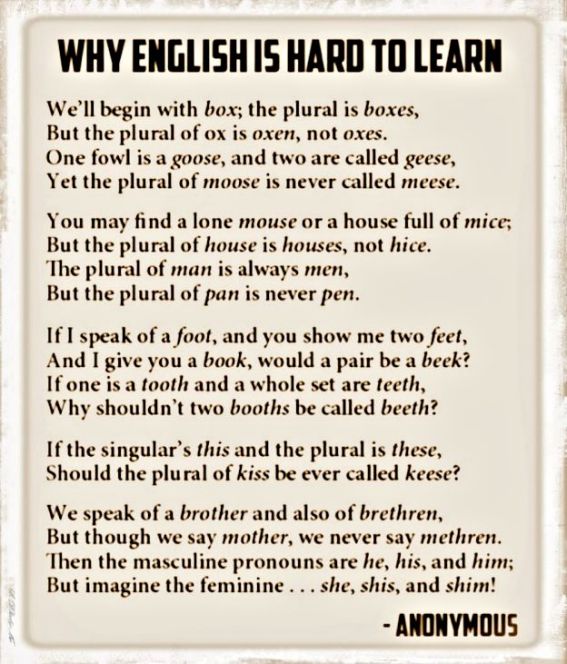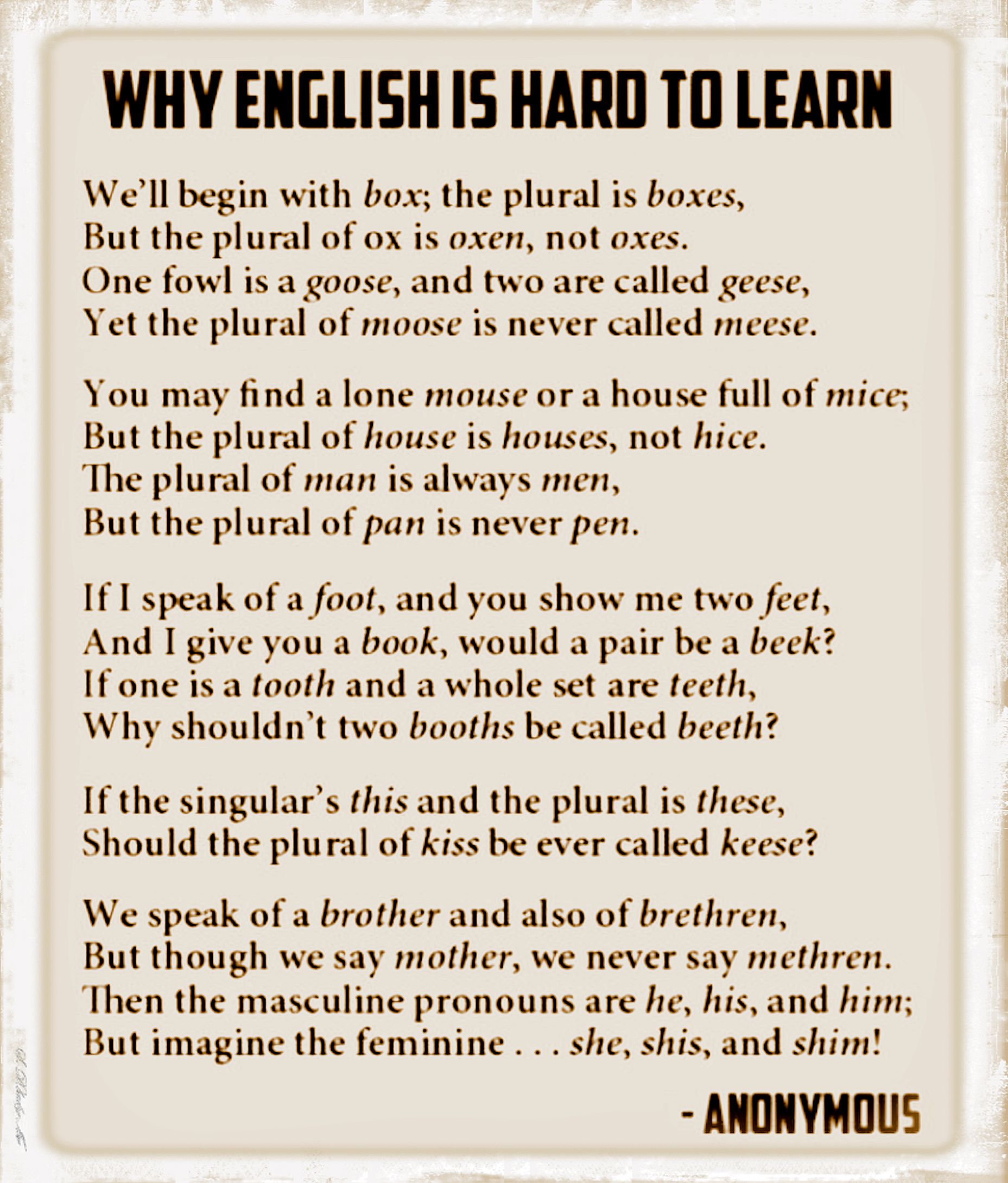
Questions about the English Language, its origin, history and development, its major events and the reasons why it is so difficult to learn and to speak
1) What was the first Indo-European language to be spoken in Britain?
The first people in Britain about whose language we have definite knowledge are the Celts. Celtic was, therefore, presumably the first Indo-European language to be spoken in the country we now know as England.
2) What were the Teutonic tribes that settled in Britain after the Romans had left it?
The Teutonic tribes which settled in Britain after the Romans had left it, were the Jutes, Saxons and Angles.
3) Where did the Jutes, Angles and Saxons come from?
Before crossing over to Britain, the Jutes and the Angles most probably had their home in the Danish peninsula; the Jutes in the northern half (hence the name Jutland) and the Angles in the South. The Saxons were settled to the south and west of the Angles, roughly between the Elbe and the Ems.
4) Where did these tribes settle?
First came the Jutes who settled in Kent, then, according to the Anglo-Saxon Chronicle, the Saxons who settled in Sussex and Wessex. Finally the Angles who occupied the east coast and then established an Anglian Kingdom north of the Humber.
5) What are the main periods in the development of English?
The English language of today is the language which has resulted from the fusion of the dialects spoken by the Jutes, Saxons and Angles. In the development of English, we generally distinguish three main periods. The period from 450 to 1150 is known as Old English. From 1150 to 1500 the language is known as Middle English. The language from 1500 to the present time is called Modern English.
6) What event is commonly considered to mark the beginning of the Old English period?
The invasion of England by Germanic tribes, notably the Angles, Saxons, and Jutes in the 5th century, marked the beginning of the Old English period.
7) Which famous medieval document played a significant role in shaping the English language during the Middle English period?
The Magna Carta, signed in 1215, played a significant role in shaping the English language during the Middle English period, as it was one of the earliest legal documents written in English rather than Latin or French.
8) Who is often credited with the translation of the Bible into English, contributing significantly to the standardization of the language?
The translation of the Bible into English by John Wycliffe in the 14th century is often credited with contributing significantly to the standardization of the English language.
9) What major historical event had a significant impact on the English language, leading to the borrowing of many French words into English?
The Norman Conquest of England in 1066 had a significant impact on the English language, leading to the borrowing of many French words into English.
10) During which period did English start to emerge as a global language due to British colonial expansion?
English started to emerge as a global language during the Early Modern English period, particularly during the Age of Exploration and British colonial expansion from the 16th century onwards.
11) What influential English writer is often referred to as the “Father of the English Language”?
Geoffrey Chaucer, the author of “The Canterbury Tales,” is often referred to as the “Father of the English Language” due to his significant contributions to English literature during the Middle English period.
12) What linguistic event occurred in the 15th century that marked the transition from Middle English to Early Modern English?
The Great Vowel Shift, a series of changes in the pronunciation of English vowels, occurred in the 15th century, marking the transition from Middle English to Early Modern English.
13) What has been the influence of the Bible on the English language?
The Bible has had a significant impact on the English language, particularly during the Middle English period when it was translated into English by figures such as John Wycliffe and later by the King James Version translators. The translation of the Bible into English helped to popularize the language among the masses and contributed to its standardization.
14) What has been the influence of Shakespeare’s works on the English language?
Shakespeare is often credited with contributing a vast number of words and phrases to the English language, estimated to be around 1,700 words according to some sources. His plays and poetry have introduced countless idioms, expressions, and linguistic constructions that have become ingrained in the English lexicon. Additionally, Shakespeare’s works have helped to standardize English grammar and vocabulary during the Early Modern English period.
15) What influential dictionary, first published in the 18th century, played a crucial role in standardizing English spelling and usage?
Samuel Johnson’s “A Dictionary of the English Language,” first published in 1755, played a crucial role in standardizing English spelling and usage.
16) Which two Germanic tribes had the most significant influence on the development of Old English?
The Angles and the Saxons had the most significant influence on the development of Old English.
17) What modern English dialect evolved primarily from the English spoken by early settlers in the American colonies during the 17th and 18th centuries?
American English evolved primarily from the English spoken by early settlers in the American colonies during the 17th and 18th centuries.
18) Why do you think the English language is so difficult to be learned well?
Because it has an extremely rich vocabulary, an irregular spelling system and a lot of idiomatic usages. As a matter of fact those five hundred words an average Englishman uses are far from being the whole vocabulary of the language. You may learn another five hundred and another five thousand and yet another fifty thousand and still you may come across a further fifty thousand you have never heard of before.
To learn, to practice and to improve the English Language, the Use of Internet and Marketing Strategies write us, we can guarantee free advice, good tricks, useful cooperation, lot of materials and ideas. Find out more at the following links:
The English language article ;
The world of English language ;
English words origin and vocabulary ;
On Facebook ;



